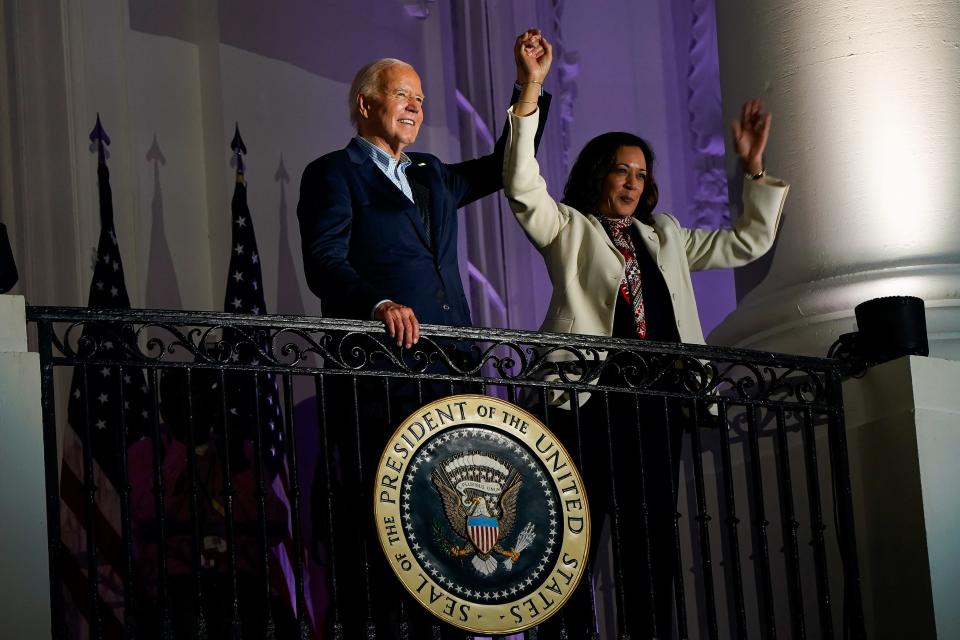Can a new presidential candidate still get on my state’s ballot?
Both former First Lady Michelle Obama and Vice President Kamala Harris are polling ahead of President Joe Biden in a hypothetical head-to-head match-up against former President Donald Trump after a shaky presidential debate at the CNN studio in Atlanta last week.
Biden dismissed speculations that he was withdrawing from the race during a conference call with his campaign on Wednesday, but that hasn’t stopped major newspaper editorial boards and high-profile Democratic donors from calling on the president to step down.

It’s not just Biden’s debate performance that has raised questions about a candidate dropping out. Either candidate, if elected, would be the oldest serving president at the end of their term, and Trump has been convicted by a Manhattan jury on 34 felony counts and still faces federal and state charges on other cases.
But is there enough time for a new candidate to get on the ballot if Trump or Biden drops out of the race?
Is it too late for a new presidential candidate to get on the ballot in my state?
Both Biden and Trump have accrued the necessary delegates to secure their party’s nomination at each nominating convention.
According to the National Association of Secretaries of State, a presidential candidate nominated by a political party that reaches certain criteria, usually based on the number of votes cast at a recent election, is placed on the general election ballot. The Democratic and Republican Parties easily reached the criteria in each state earlier this year.
This means that if Biden or Trump are nominated by their respective parties, their names will appear on the general election ballot in each state.
But if one of them were to drop out and/or a different candidate was nominated at the convention, that person instead would be placed on the general election ballot. One way this could happen is through an open convention, a process not used since 1968 where delegates pledged to a certain candidate could cast their votes for someone else.
Each state then has different rules for how the political party must certify their candidate and how many days before the election this must happen.
For example, in California, a qualified political party must certify to the secretary of state the presidential electors no later than October 1. In Texas, political parties must certify the names of the nominated president and vice-president, as well as the names of the presidential electors, 71 days before the election or the first business day after the final nominating convention.
The Republican National Convention will take place on July 15 through July 18 in Milwaukee, Wisconsin, while the Democratic National Convention will be in Chicago from August 19 to August 22.
Could a new candidate get on the ballot after the convention?
If Trump or Biden was nominated but then dropped out after the convention, the national parties would do the picking and choosing of who the replacement candidate will be through special meetings, according to political scientists.
But the timing of getting the candidate’s name on the ballot in every state could be tricky as ballots need to be printed and sent out, in some cases, as early as 45 days before Election Day.
Non-major party candidates
The process for independent candidates and smaller party candidates to get on the ballot varies in each state, usually require a varying number of signatures and have different dates by which candidates must file and meet other requirements.
The process can be complicated, as shown by long-shot independent candidate Robert F. Kennedy Jr.’s attempts to get on the ballot in all 50 states.
This article originally appeared on USA TODAY: Too late for a new presidential candidate on my state's ballot?


